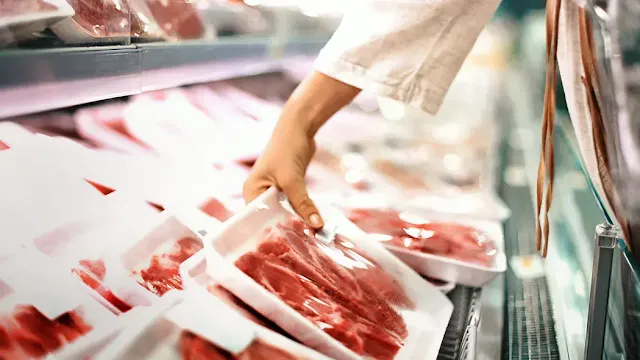Researchers found that people who did not eat meat, whether vegetarians or vegans, were at greater risk of fractures, especially in the hips. If this risk remains low, it could be explained by the fact that lovers of meat products consume more calcium and protein.
The benefits of a plant-based diet are well known from an environmental point of view: for climate and animal protection. From a nutritional standpoint, numerous studies have shown that a vegetarian diet can reduce the risk of heart disease, diabetes, obesity and certain cancers. In this case, a vegetarian diet and nutritional balance can go hand in hand, provided certain rules are followed for a good protein intake. In particular thanks to judicious associations between foods: for example by combining cereal product and legume or cereal product and dairy product or eggs.
But as the Ministry of Health specifies on the subject, vegetarians must ensure that iron needs are met, especially among women. Here is a study warns of a risk hitherto little mentioned, that of fractures.Published in the journal BMC Medicine, it indicates that people who do not eat meat are vegetarians, vegans and pesco-vegetarians (eat fish and shellfish) are at greater risk for fractures, especially in the hips. The effect may come from a lack of calcium and protein associated with their diet, as well as the fact that they tend to be thinner and therefore have "less flesh" to cushion a fall.
"The biggest difference was in the hip"
So, compared to people who ate meat, vegans with lower calcium and protein intakes on average had a 43% higher risk of total fractures, as well as higher risks of site-specific hip fractures. , legs and vertebrae. Vegetarians and people who ate fish but not meat also had a higher but lower risk of hip fractures compared to people who ate meat. However, the risk of fractures was partially reduced once body mass index (BMI), dietary calcium and dietary protein intake were taken into account.
“This is the first comprehensive study on the risks of total and specific fractures in people of different food groups. We found that vegans had a higher risk of total fractures, resulting in almost 20 more cases per 1,000 people over a 10-year period compared to people who ate meat. ”Says Dr. Tammy Tong, lead author of the study. “The biggest differences were in hip fractures, where the risk in vegans was 2.3 times higher than in those who ate meat, which equates to 15 more cases per 1,000 people over 10 years . "
The body mass index, a factor not to be overlooked
This new research built on a long-standing study called EPIC-Oxford, a cohort of 55,000 people living in the UK recruited between 1993 and 2001. Of the total number of participants, 29,380 ate meat, 8,037 fish but not meat, 15,499 were vegetarians and 1,982 were vegans (with the addition of an exclusion of dairy products and other products of origin. animals such as eggs and honey) when recruiting. Their eating habits were assessed at recruitment, then again in 2010. The participants were followed continuously for 18 years for the occurrence of fractures, a total of 3,941 during the study.
Specifically, 566 fractures occurred in the arm, 889 in the wrist, 945 in the hip, 366 in the leg, 520 in the ankle, and 467 fractures at other major sites, defined as the collarbone, ribs and vertebrae. . The researchers found that compared to people who ate meat, vegetarians and vegans had higher risks of total fractures. The association eased with further adjustment for calcium, protein, and BMI but was clearly significant in vegans and the greatest difference in risk by diet group was particularly in hip fractures.
Benefits and risks for every diet
“Previous studies have shown that a low BMI is associated with a higher risk of hip fractures, and low intakes of calcium and protein have both been linked to poor bone health. This study showed that vegans, who had a lower BMI as well as lower intakes of calcium and protein than meat eaters, had a higher risk of fractures at several sites. », Adds Professor Tong. The researchers therefore urge followers of a plant-based diet to ensure they have adequate levels of calcium and protein and maintain a healthy body mass index, "that is to say, not under- weighted nor overweight. "
The researchers warn, however, that they were unable to differentiate between fractures caused by poor bone health and those caused by accidents because such data was not available. The latter wish to conduct further studies in different populations, including non-Europeans and with a greater proportion of men, to explore possible differences in risk according to sex and ethnicity. Note that the World Health Organization recommends limiting the consumption of processed meat and red meat, the latter being linked to increased risks of death from heart disease, diabetes and other diseases.


0 Comments